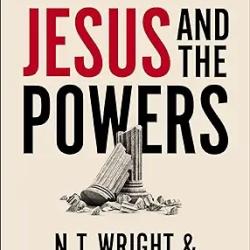It has taken me awhile to process this film. The film takes a small slice of Paul’s life, the end of it in about 67 A.D. and tells the story with empathy, passion, joy and sorrow. Unlike some films which major in Christian schlock, this film has real pathos, and the acting is first rate—- Jim Faulkner as Paul is excellent, so is Jim Caviezel as Luke, Joanne Whalley as Priscilla, John Lynch as Aquila, and Oliver Martinez as the Roman prefect and runner of the Mamertine prison, Mauritius. The film is only 108 minutes long, but because the story is circumscribed it seems longer. It is filmed in Italy as well, which is a bonus, and does not rely on a bunch of CG to give color and feel to a story that does not need perking up. There is also not a lot of bloodshed in this film. Instead the heart of the film focuses on Christ and the Gospel of love and forgiveness and healing. There are scenes that will make you weep, and a few, too few which will make you laugh. The ongoing interchange between Luke and Paul is especially poignant. And there are no major historical gaffs (thanks to my former classmate Dr. Scott Hahn who advised on this film).
The portrayal of the Christian community in Rome is helpful. We find Priscilla and Aquila leading. Peter is nowhere in cite, Paul is in prison, and Luke has come to write down Paul’s story, and also the Pastoral Epistles, as it turns out. The danger in telling Paul’s story is made clear, and the ongoing effort to make copies and spread the Good News through Luke’s writings.
If one couples this portrayal of Paul with that of Anthony Hopkins in Peter and Paul from the 80s, we have at least two good attempts to convey the significance of the man and make his letters and life come to life on film. I know of no better portrayal of Luke on film than in this film, even though it’s called Paul the Apostle of Christ. I also am happy with the portrayal of Roman pagan life and religion. They were indeed profoundly religious, just not in a Biblical sense. The producers have not overshot the mark in regard to the persecution of Christians, as sometimes happens, seeing the wisdom of allowing the drama to be enough, without adding melodrama of the Cecil B. DeMille sort. I look forward to seeing this film again, and being able to use it in class as well as in church.















